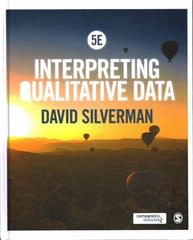Question
#Use headings by including An introduction (outline key points) # The body (answering the questions using conflict theory) #Includes a description of the conflict #
#Use headings by including An introduction (outline key points)
# The body (answering the questions using conflict theory)
#Includes a description of the conflict
# A conclusion (summarise key points) to answer below questions.
1. Identify a past conflict you have experienced in the past AND describe the cause of the conflict and how it was manifested
2. Evaluate how your conflict resolution strategies were effective/ineffective
3. Explain how mediation AND one other conflict management approach would have been appropriate/inappropriate for resolving this conflict
4. Identify and describe THREE ways in which your conflict could have been mediated to achieve a more positive outcome
5. Describe how you would mediate such a similar dispute, Explaining your role in the process, AND the steps you would need to take to remain neutral and follow ethical guidelines.
Include an introduction which provides a background, thesis and outline and a conclusion summarising the key points and limitations of your argument and provide future recommendations.
Make specific references to mediation/conflict theories and techniques and include academic in-text citations references in each point.
Use below references using APA 7 format.
Barsky, A. (2014). Conflict resolution for the helping professions. Oxford University Press, Incorporated. https://lesa.on.worldcat.org/oclc/913580406
Coleman, P. T., Deutsch, M., & Marcus, E. C. (Eds.). (2014). The handbook of conflict resolution : Theory and practice. John Wiley & Sons, Incorporated. https://lesa.on.worldcat.org/oclc/871781351
Deschamps, J. (2019). Mediation : A concept for information and communication sciences. John Wiley & Sons, Incorporated. https://lesa.on.worldcat.org/oclc/1084433417
Evokes Productions, (2015), Workplace Mediation in Action - Conflict Masters, https://www.youtube.com/watch?v=4Uzbpj1UCEY
Furlong, G. T. (2010). The conflict resolution toolbox : Models and maps for analyzing, diagnosing, and resolving conflict. John Wiley & Sons, Incorporated. https://lesa.on.worldcat.org/oclc/243596461
Herrman, M. S. (Ed.). (2008). The Blackwell handbook of mediation : Bridging theory, research, and practice. John Wiley & Sons, Incorporated. https://lesa.on.worldcat.org/oclc/437159297
Lewis, C. (2015). How to master workplace and employment mediation. Bloomsbury Professional. https://lesa.on.worldcat.org/oclc/1053857291
Liebmann, M., Bowers, S., & Bitel, M. (2011). Mediation in context. Jessica Kingsley. https://lesa.on.worldcat.org/oclc/731646855
Mayer, B. S. (2015). The conflict paradox : Seven dilemmas at the core of disputes. John Wiley & Sons, Incorporated. https://lesa.on.worldcat.org/oclc/890377860
Mayer, B. S. (2012). The dynamics of conflict : a guide to engagement and intervention (2nd ed., Ser. Wiley desktop editions). Jossey-Bass. https://lesa.on.worldcat.org/oclc/785777947
McCorkle, S., & Reese, M. J. (2018). Mediation theory and practice. SAGE Publications, Incorporated. https://lesa.on.worldcat.org/oclc/1010665150
Moore, C. W. (2014). The mediation process : Practical strategies for resolving conflict. John Wiley & Sons, Incorporated. https://lesa.on.worldcat.org/oclc/869460694
Whetten, D. A., & Cameron, K. S (N.D) Developing Management Skills. http://www-personal.umich.edu/~lroot/ConflictMgtConceptMap/Whetten
Step by Step Solution
There are 3 Steps involved in it
Step: 1

Get Instant Access to Expert-Tailored Solutions
See step-by-step solutions with expert insights and AI powered tools for academic success
Step: 2

Step: 3

Ace Your Homework with AI
Get the answers you need in no time with our AI-driven, step-by-step assistance
Get Started


